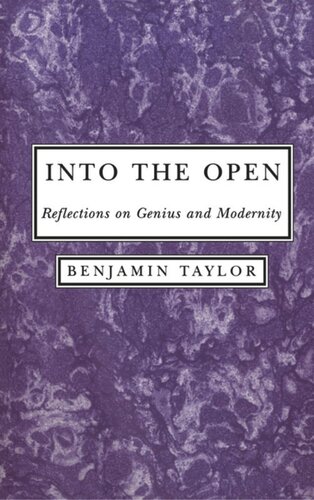

Most ebook files are in PDF format, so you can easily read them using various software such as Foxit Reader or directly on the Google Chrome browser.
Some ebook files are released by publishers in other formats such as .awz, .mobi, .epub, .fb2, etc. You may need to install specific software to read these formats on mobile/PC, such as Calibre.
Please read the tutorial at this link: https://ebookbell.com/faq
We offer FREE conversion to the popular formats you request; however, this may take some time. Therefore, right after payment, please email us, and we will try to provide the service as quickly as possible.
For some exceptional file formats or broken links (if any), please refrain from opening any disputes. Instead, email us first, and we will try to assist within a maximum of 6 hours.
EbookBell Team

0.0
0 reviewsInto the Open is a philosophical and literary inquiry into the deeper meanings of genius. What precisely do we mean when we describe someone this way? What legacy do we invoke when we apply this term?
To address this question, Benjamin Taylor here explores how three great mindsWalter Pater, Paul Valry, and Sigmund Freudviewed a figure widely considered the first great modern genius, Leonardo da Vinci. For each of these great thinkers, Da Vinci is of central importance because for each the received idea of genius has ceased to be a romantic certitude or sacred truth and has become a problem.
Invoking Nietzsche's drastic critique of genius, Taylor assesses the less programmatic and more anxious cases of Pater, Valry, and Freud. Whereas Nietzsche sought for and found an escape from romantic humanism, Pater, Valry, and Freud cannot relinquish the idea of genius and serve as troubled witnesses to the dilemma posed by the notion of genius. A myth of genius has been our way of making good the losses romantic modernity entails, Taylor writes, A myth of genius has existed to affirm that, among human lives, some have sacramental shape; that, among human lives, some put into abeyance the equation between life and loss. Such is the post-theological, post-metaphysical role into which we have compelled our geniuses. They make for us one last claim on the sublime.
A shift away from the special pleading that has lately plagued literary studies, Taylor's unfazed humanism reasserts the timeless standards of substantiveness, clarity, and grace.